 “STRATEGY IS THE PROMISE THAT CULTURE MUST DELIVER Nature is clear. So is business: evolve or die.” ~ Culture Eats Strategy for Lunch, Curt Coffman, and Kathie Sorensen
“STRATEGY IS THE PROMISE THAT CULTURE MUST DELIVER Nature is clear. So is business: evolve or die.” ~ Culture Eats Strategy for Lunch, Curt Coffman, and Kathie Sorensen
This statement harnesses the vital importance of culture. It’s why in Reid Hoffman’s, Masters of Scale he dedicates several chapters to building a culture to scale.
Recently having read/listened to Masters of Scale, I felt the need to reinforce the powerfulness of Culture in building your company, and in particular a company you want to grow.
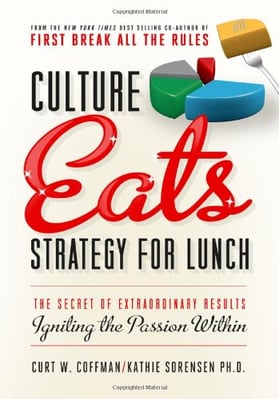 These quotes from Culture Eats Strategy for Lunch emphasize the nature of Culture to your business.
These quotes from Culture Eats Strategy for Lunch emphasize the nature of Culture to your business.
“If you’ve ever used a carpenter’s level to hang a picture, you know the importance of keeping the “bubble” centered between the lines. A fraction of movement sends the bubble careening off to the side, a tiny change with major consequences to the final product. Great culture is a state of being; it is energy in motion. Like all energy, great culture can’t be stored and saved for later. The energy within is either productively used or squandered. When the culture “bubble” goes off center it drags down individual hopes, organizational results, and global competitiveness.”
“Little detractors start dragging the culture off-kilter; decisions are made too far from the action and rules replace communication. Politics substitute for relationships and self-interest wins out over shared mission and purpose. People are divided, as the competition focuses inward. If you don’t experience excellence, average looks pretty good. Whatever you want for your life or your children’s, it is a journey you can’t take alone. Who and how you connect makes all the difference. That’s why the role we each play in building and maintaining a great culture is so important.”
Netflix – Masters of Scale
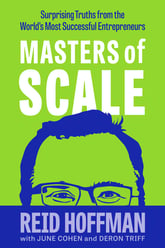 Culture is a living, breathing thing—the context you set for your employees to work at their best. It should be grounded in a shared sense of mission—the thing your company is trying to accomplish. It should be understood by everyone and built by everyone. It fully emerges only when every employee feels a sense of personal investment and ownership.
Culture is a living, breathing thing—the context you set for your employees to work at their best. It should be grounded in a shared sense of mission—the thing your company is trying to accomplish. It should be understood by everyone and built by everyone. It fully emerges only when every employee feels a sense of personal investment and ownership.
Netflix founder, Reed Hastings learned at his first company, Pure Software, if you dummy-proof the system, only dummies want to work for you.
Watch Patty McCord’s short 2:46 video on how they created their culture at Netflix.
Finding engineers to build a pioneering video-streaming service was going to be a challenge. Reed Hastings looked for “first-principle thinkers.” First-principle thinking is the idea that everything you do is underpinned by foundational beliefs or first principles. Instead of blindly following directions, or sticking to an established process, a first-principle thinker will break down a problem to its most basic assumptions, and test or question those assumptions. Then re-create them from the ground up. Rather than do things in a habitual way, a first-principle thinker wonders, “Couldn’t we do it this other way instead?” These were the kinds of inquisitive minds Reed Hastings wanted in the room. And to lure them he devised an unexpectedly effective tool: the Culture Deck. (You can find the complete deck here on Slide Share)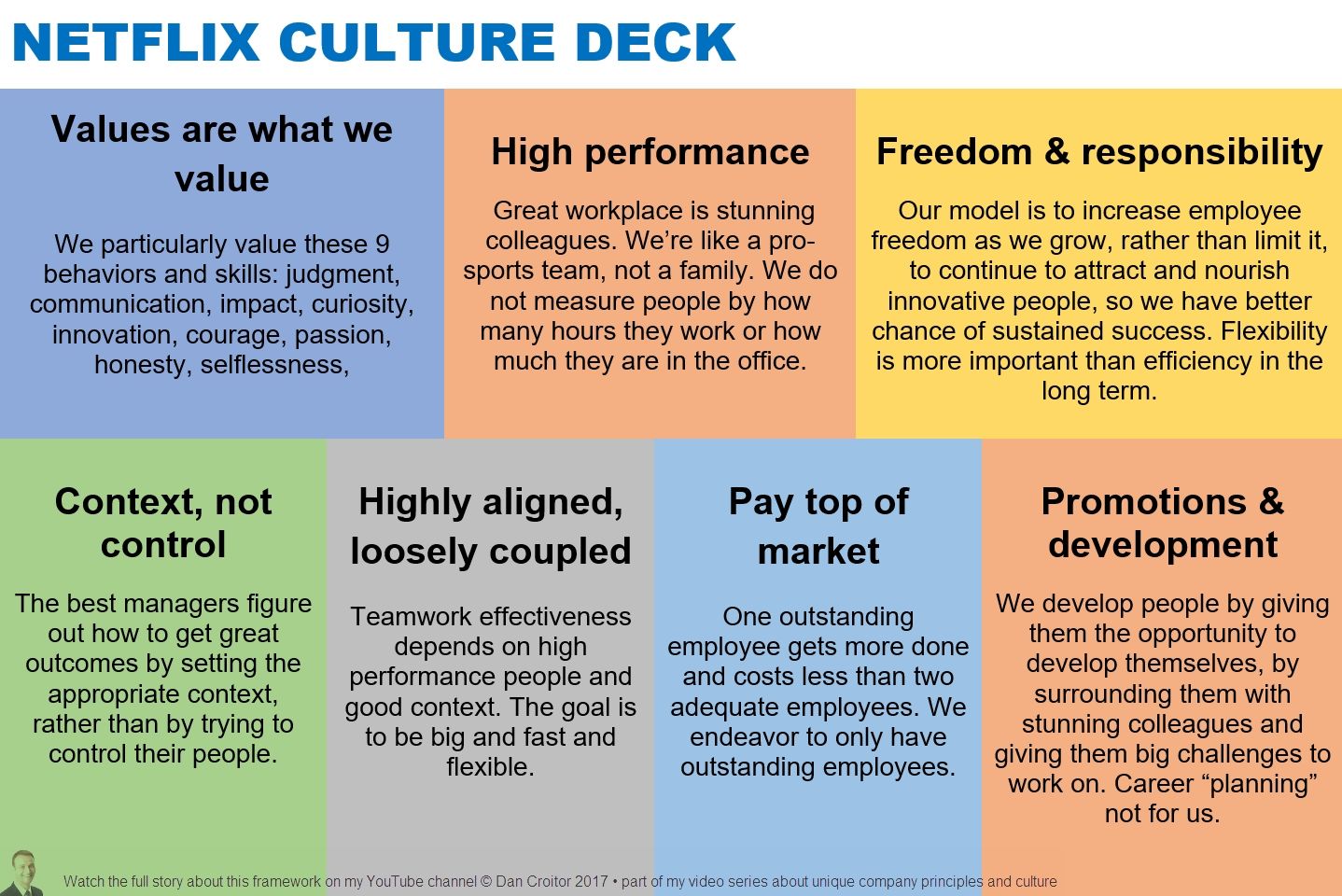
Today, Netflix is filled with first-principle thinkers, whose mindset permeates company-wide decision-making on everything from entertainment content to spending on business-related travel. “With all those decisions, we ask people to think about what is best for the company,” Reed says. “We don’t give them any more guidelines than that.” But of course, that kind of agency isn’t for everyone—some people want to be told what to do. “Those people are not a good match for Netflix,” he says.
The problem with people who need to be told what to do is they’re not resourceful. If your business consistently hires these kinds of people, or you micromanage them, it’s challenging to get any more than minimum effort. IF this describes your workforce, the first place for change is your culture and your hiring process. Successful businesses know Jim Collins’ First WHO, then WHAT principle. Your culture is your WHO, and it’s up to you to determine, just as Reed Hasting’s did how to get the Right People on the Bus!
To create an environment where everyone is inspired to give their best, contact Positioning Systems today to schedule a free exploratory meeting.
Growth demands Strategic Discipline.
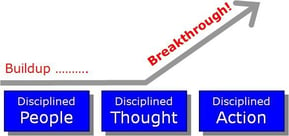 Your business may not be comparable to Netflix, so next blog we share Danny Meyer’s culture idea, which contrary to what most would advise, the customer doesn’t come first, the staff comes first. His twist and story about building his successful chain of restaurants including Shake Shack next blog.
Your business may not be comparable to Netflix, so next blog we share Danny Meyer’s culture idea, which contrary to what most would advise, the customer doesn’t come first, the staff comes first. His twist and story about building his successful chain of restaurants including Shake Shack next blog.
Building an enduring great organization requires disciplined people, disciplined thought, disciplined action, superior results, producing a distinctive impact on the world.
Discipline sustains momentum, over a long period of time, laying the foundations for lasting endurance.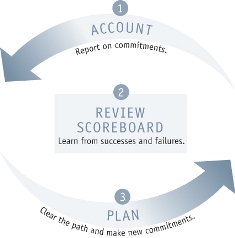
A winning habit starts with 3 Strategic Disciplines: Priority, Metrics, and Meeting Rhythms. Forecasting, accountability, individual, and team performance improve dramatically.
Meeting Rhythms achieve a disciplined focus on performance metrics to drive growth.
Let Positioning Systems help your business achieve these outcomes on the Four most Important Decisions your business faces:
|
DECISION |
RESULT/OUTCOME |
|
PEOPLE |
|
|
STRATEGY |
|
|
EXECUTION |
|
|
CASH |
|
Positioning Systems helps mid-sized ($5M - $250M+) businesses Scale-UP. We align your business to focus on Your One Thing! Contact dwick@positioningsystems.com to Scale Up your business! Take our Four Decisions Needs Assessment to discover how your business measures against other Scaled Up companies. We’ll contact you.
NEXT BLOG – In this Restaurant, the Staff Comes First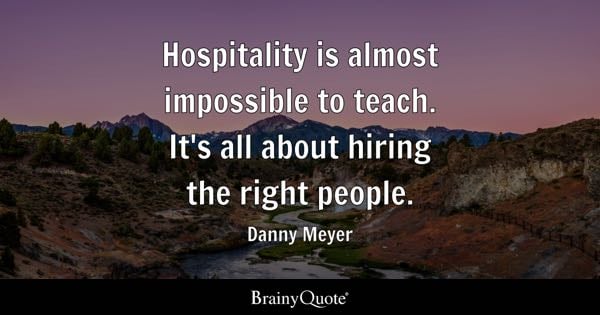






.jpeg?width=150&height=135&name=Hand%20with%20marker%20writing%20the%20question%20Whats%20Next_%20(1).jpeg)

